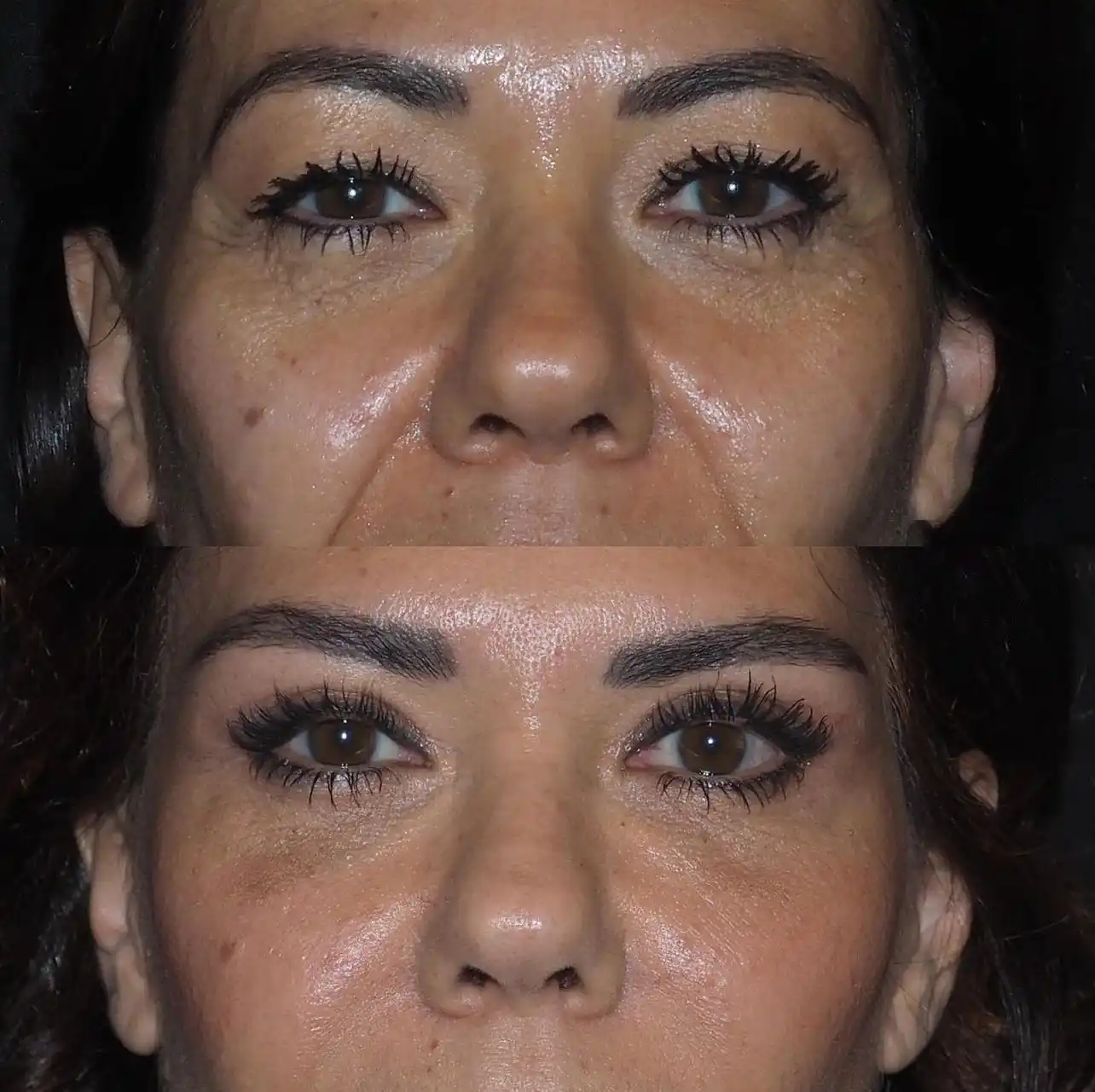In recent years, mechanical air ventilation has gained importance in residential and commercial settings. These systems improve indoor air quality by ensuring consistent and controlled air circulation. Unlike natural ventilation, mechanical systems are not dependent on external conditions, making them more reliable. They are particularly beneficial in densely populated or urban areas where outdoor air quality may be compromised. By offering a regulated airflow, Mechanical Ventilation systems help maintain a cleaner and healthier indoor environment. This post will delve into the top 12 benefits of mechanical air ventilation systems and their impact on indoor living and working spaces.
Improved Air Movement
Mechanical air ventilation systems are designed to optimise airflow within indoor spaces, ensuring that air circulates consistently and effectively. By maintaining a continuous flow of air, these systems prevent the buildup of stagnant air, leading to unpleasant odours and a musty atmosphere. Regular air exchange contributes to a fresher and more comfortable indoor environment, improving overall air quality.
Even Air Distribution across All Rooms
One key benefit of Mechanical Air Ventilation is its ability to distribute fresh air evenly throughout a building. Specific areas can become stuffy or poorly ventilated in larger or multi-room environments. A well-designed ventilation system ensures fresh air reaches every corner of the space, providing a balanced and comfortable atmosphere. This is particularly important in homes, offices, or other large buildings where natural ventilation is insufficient to maintain optimal air quality.
Reducing Contaminants and Improving Temperature Balance
In addition to improving air quality, Mechanical Air Ventilation systems help reduce the risk of airborne contaminants accumulating in any area. Constant airflow helps to keep dust, allergens, and other particles from settling, promoting a cleaner, healthier indoor environment.
Furthermore, improved airflow contributes to more even temperature distribution, helping to eliminate hot or cold spots and ensuring that the indoor climate remains consistent and comfortable for everyone. This combination of air quality and temperature control makes Mechanical Air Ventilation essential to a relaxed and healthy indoor space.
Efficient Pollutant Extraction
Mechanical Air Ventilation systems capture and eliminate dust, allergens, and other airborne pollutants through high-quality filters. These systems benefit individuals with allergies or respiratory conditions, ensuring a cleaner and safer indoor air environment. The continuous filtration removes harmful particles, preventing them from circulating within the indoor space.
This not only improves air quality but also reduces the accumulation of dust and allergens on surfaces, creating a healthier living and working environment. The effectiveness of these systems in pollutant extraction contributes significantly to overall well-being by providing consistently clean air for occupants.
Steady Temperature Regulation
Mechanical air ventilation ensures a balanced indoor climate by effectively working with existing heating and cooling systems. Maintaining consistent air circulation helps evenly distribute warm or cool air, preventing hot or cold spots within the space. This seamless temperature regulation enhances occupant comfort and optimises energy efficiency.
When indoor temperatures are stabilised, heating and cooling systems do not need to work as hard, which can result in reduced energy consumption and lower utility bills. This makes mechanical air ventilation an economical choice for maintaining a comfortable indoor environment throughout the year.
Lowered Humidity Levels
Excess humidity can contribute to problems such as mould growth, dampness, and structural damage. Mechanical Air Ventilation systems efficiently manage indoor humidity levels by expelling excess moisture from the air. This moisture control helps prevent mould and mildew development, which can pose health risks and damage property. These systems are particularly beneficial in environments prone to high humidity, such as kitchens and bathrooms.
By maintaining a balanced indoor atmosphere, Mechanical Air Ventilation systems also help preserve the integrity of furnishings and the likelihood of damp-related issues. Effective humidity regulation ensures a more comfortable living and working space, safeguarding the building and its occupants.
Enhanced Comfort
Mechanical Air Ventilation systems significantly contribute to the overall comfort of indoor environments. By maintaining steady airflow, these systems prevent the indoor atmosphere from becoming stuffy or stale, ensuring a consistently fresh ambience. They help maintain an even temperature, preventing uncomfortable hot or cold spots and enhancing the overall climate within the space.
Additionally, by efficiently managing humidity levels, Mechanical Air Ventilation systems prevent issues like dampness and mould, which can cause discomfort and health concerns. The resulting balanced and clean air quality makes spaces more enjoyable and conducive to relaxation or productivity. Whether it’s a home setting or a commercial space, the improved comfort provided by these systems significantly enhances the quality of indoor living and working environments.
Health Advantages
Mechanical air ventilation systems enhance indoor air quality, supporting overall health and well-being. By continuously filtering out airborne pollutants such as dust, allergens, and harmful particles, these systems minimise the risk of respiratory conditions and other health issues. Individuals with asthma or allergies particularly benefit from the cleaner air that Mechanical Air Ventilation provides.
Moreover, by controlling humidity levels, these systems help prevent the growth of mould and mildew, which can trigger allergic reactions and other health problems. The constant exchange of fresh air reduces the concentration of indoor pollutants, ensuring a healthier living and working environment for all occupants.
Reduced Noise Levels
One notable advantage of mechanical air ventilation systems is their ability to operate quietly compared to natural ventilation options. This low-noise operation is especially beneficial when maintaining a peaceful atmosphere is essential, such as in offices, bedrooms, or hospitals. Unlike traditional fans or open windows, which can introduce external noise and disturbances, mechanical systems are designed to function with minimal sound.
This quiet efficiency enhances the overall indoor experience by providing a serene environment, free from the constant hum or chatter that can accompany other ventilation methods. The reduced noise levels make these systems an excellent choice for environments requiring concentration or rest, ensuring that occupants enjoy a calm, undisturbed atmosphere.
Energy Efficiency of Mechanical Ventilation Systems
Mechanical Ventilation systems enhance energy efficiency by maintaining steady airflow and supporting the functionality of heating and cooling systems. This harmonised operation reduces the strain on these systems, lowering overall energy consumption. These systems are engineered to optimise air circulation without excessive power use, which can translate into significant energy savings over time.
By preventing hot and cold spots, Mechanical Air Ventilation systems ensure that heating and cooling efforts are more evenly distributed, reducing the need for constant adjustments and energy spikes. Additionally, some advanced models have energy recovery features that capture and reuse heat, further contributing to their efficiency. In environments where energy costs are a concern, Mechanical Air Ventilation systems can offer a practical solution for achieving a balanced and energy-conscious indoor climate.
Personalisation Options
Mechanical Air Ventilation systems offer a high degree of customisation to cater to diverse requirements and preferences. Whether for a small flat or a sprawling commercial building, these systems can be configured to deliver optimal performance tailored to the specific demands of the space. Advanced controls and settings allow users to adjust airflow rates, filtration levels, and operational schedules to match their unique needs.
Some systems even have smart technology features that enable remote monitoring and control via mobile apps or integrated home automation systems. This level of personalisation ensures that occupants can enjoy a comfortable and healthy indoor environment precisely suited to their lifestyle or business operations.
Adherence to Building Standards
Mechanical Air Ventilation systems play a crucial role in helping buildings adhere to stringent air quality and environmental regulations. These systems are designed to meet specific standards for indoor air quality, ensuring that the air within the building remains free from harmful pollutants and allergens. This compliance is essential in commercial and public buildings, where the health and safety of occupants are paramount. By incorporating high-quality filters and consistent air circulation, Mechanical Air Ventilation systems help maintain the required levels of indoor air purity.
Additionally, these systems support efforts to reduce carbon footprints by improving energy efficiency and lowering overall emissions. As a result, buildings equipped with advanced Mechanical Air Ventilation are better positioned to achieve and maintain necessary certifications and accreditations, reflecting their commitment to providing a safe and healthy indoor environment.
Longevity and Robustness
Mechanical air ventilation systems are designed to withstand the test of time, offering durability and consistent performance. These systems are constructed using high-quality materials that resist wear and tear, ensuring they remain functional even under continuous operation. Regular maintenance can extend their lifespan, making them a cost-effective solution for long-term indoor air quality management.
- One of the key attributes of these systems is their robust construction, which enables them to operate efficiently in various environments. Whether installed in a residential setting or a commercial building, Mechanical Air Ventilation systems are engineered to handle the demands of daily use without compromising performance. This robustness also translates to fewer breakdowns and less frequent need for repairs, thereby minimising downtime and associated costs.
- Moreover, many Mechanical Air Ventilation systems come with warranties and after-sales support, providing property owners with added peace of mind. Manufacturers often offer extended service plans and parts replacement options, ensuring the system remains in peak condition throughout its operational life.
- Advancements in technology further enhance the longevity of Mechanical Air Ventilation systems. Modern units often incorporate energy-efficient motors, advanced filtration systems, and intelligent controls, improving performance and contributing to the system’s overall durability. These technological innovations make today’s Mechanical Air Ventilation systems more reliable and long-lasting.
In summary, mechanical air ventilation systems’ robust nature and extended lifespan make them an excellent investment for maintaining superior indoor air quality over the long term. Their ability to deliver consistent and reliable performance, coupled with ongoing technological advancements, ensures that these systems remain a valuable asset for any property owner.
Conclusion
Mechanical Ventilation systems are indispensable for maintaining superior indoor air quality and creating a healthier and more comfortable environment. These systems offer consistent airflow, effective pollutant extraction, temperature regulation, and humidity control, benefiting residential and commercial spaces. Their durability, energy efficiency, and personalisation options ensure they are a long-term investment in well-being and environmental sustainability. By enhancing air circulation, reducing contaminants, and adhering to building standards, Mechanical Air Ventilation systems remain reliable for improving indoor living and working conditions. Investing in these systems is a proactive step toward healthier, safer, and more energy-efficient spaces.
FAQs about Mechanical Air Ventilation Systems
What is a Mechanical Ventilation, and how does it work?
A Mechanical Ventilation uses fans, ducts, and filters to regulate indoor air quality by circulating fresh air and expelling stale air. Unlike natural ventilation, which relies on windows and openings, mechanical systems provide controlled airflow, ensuring consistent ventilation regardless of external conditions. These systems can also include filtration to remove airborne particles and energy recovery features to optimise energy use.
How do Mechanical Air Ventilation systems improve indoor air quality?
These systems improve air quality by continuously circulating fresh air, filtering dust, allergens, and pollutants, and regulating humidity. High-quality filters trap harmful particles, preventing their circulation indoors. By maintaining optimal airflow, Mechanical Air Ventilation systems reduce the buildup of stale air and unpleasant odours, contributing to a healthier environment.
Are Mechanical Air Ventilation systems energy-efficient?
Yes, Mechanical Air Ventilation systems are designed to enhance energy efficiency. They work harmoniously with heating and cooling systems to distribute air evenly, reducing energy consumption. Advanced models include energy recovery technology that captures and reuses heat, optimising efficiency and lowering utility costs.
What maintenance does a Mechanical Air Ventilation system require?
Regular maintenance is essential for optimal performance. This includes cleaning or replacing filters, checking fan operation, and inspecting ducts for blockages or damage. Professional servicing is recommended annually to ensure the system runs efficiently and prolongs its lifespan.
Are Mechanical Air Ventilation systems suitable for all buildings?
Yes, Mechanical Air Ventilation systems can be customised to suit various building types, from tiny homes to large commercial spaces. Systems can be tailored to specific needs, including airflow rates, filtration requirements, and integration with smart home technology, making them a versatile solution for any environment.
| Related Business Listings |
| Contact Directory |
| Local Business Profiles |




